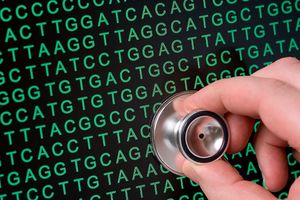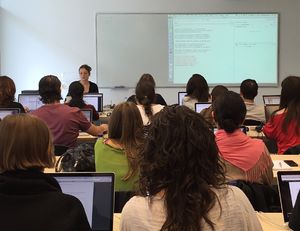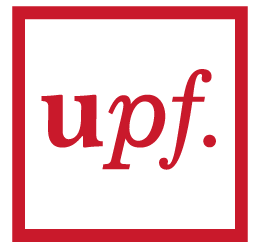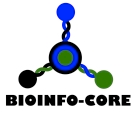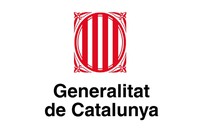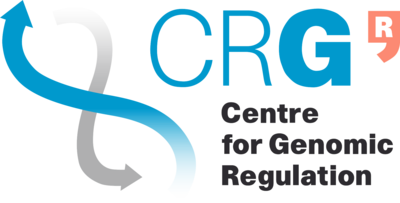BioCore @ CRG
From Bioinformatics Core Wiki
Welcome to the CRG Bioinformatics Core! We provide researchers with services of analyses of high-throughput sequencing (NGS, Nanopore, droplet-based) and other biomedical data, software/pipelines and database development, and bioinformatics training. We focus on delivering reproducible results using the modern computational solutions (NextFlow, Cloud, Linux containers). Contact us.
(11 February 2024)
From the 6th to the 9th of February 2024, we delivered a new edition of our Nextflow course, specially suited to the researchers of ALBA synchrotron. More details at: https://www.crg.eu/en/event/coursescrg-reproducible-computational-pipelines-nextflow
The Bioinformatics Unit at the CRG has become a new node of INB/ELIXIR-ES (https://inb-elixir.es/about-inb/inb-nodes). INB is the Spanish Institute of Bioinformatics, which is, at the same time, the Spanish umbrella of the European-wide ELIXIR project. The latter one allows life science laboratories to share recommendations and research data as part of an organised network. As a main reference service, we started our contribution with Master Of Pores Nanopore analysis pipeline.
(1 December 2021)
Today, Luca Cozzuto gave an online workshop on how to use Nextflow for the ELIXIR Bioinformatics workflow management event. More than 200 people attended via Zoom and
Twitch. The materials of the workshop are available on GitHub.
(18 November 2021)
Today we have finished the last day of the 4-day online course delivered for the SIB Swiss Bioinformatics Institute.Here is the GitHUb page with the course material. 34 people from 8 countries attended the course.
(18 October 2021)
This year, for the CRG PhD program, along with the short course on genomics data formats and how to use Linux commands to manipulate big files, we introduced a new hands-on course "Introduction to Linux containers" for an advanced bioinformatics track and also a new course on FAIR data management for all PhD students.
(11 May 2021)
Today we have finished the last day of our online course "Reproducible research and data analysis with Linux containers and Nextflow pipelines": 4 full days course: 2 days dedicated to Docker and Singularity, 2 days to Nexftlow. About 30 attendees, all online!
(5 May 2021)
The paper in collaboration with the laboratory of Stephan Ossowski in out in Frontiers in Molecular Neuroscience.
We finished our first edition of the intermediate R - introduction to data manipulation with the tidyverse course. Two 4-hour online sessions to work a bit with packages such as tidyr, dplyr, stringr, tibble.
(16 April 2021)
Today we have finished the last of the 8 sessions of our Bioinformatics for Biologists course (first time online!).
(13 April 2021)
We finished our first online edition of the Introduction to R programming course!
(6 April 2021)
We participated to a fruitful 2-day hackathon on preparing course material for Linux containers and workflow (Nextflow) courses. The hackathon was organized by the VIB Bioinformatics core and the resulting documentation is available in github
(1 December 2020)
The paper about mass PCR testing conducted at CRG is published in F1000 Research and highlighted in the RECERCAT Newsletter.
(9 November 2020)
The materials are available at https://biocorecrg.github.io/PhD_course/
(28 October 2020)
The course has been organized and supported by the VIB Bioinformatics core. 25 people attended the course. The course materials are available in GitHub and at this webpage.
(8 September 2020)
The EGA team has released the CRG Covid Viral Beacon, a tool to find SARS-CoV-2 variability at genomic, amino acid and motif level. The Bioinformatics Unit adopted its MasterOfPore pipeline for the analysis of all publicly available cDNA Nanopore sequencing data used by the Beacon.
(31 July 2020)
Dr. Harris Onywera was an intern in our Unit for 6 months in 2016. Two collaborative papers were recently published in Frontiers in Medicine and BMC Microbiology. His experience at CRG has been recently highlighted in the U. Cape Town press-release.
The CRG ORFEU program has been launched in April 2020 in response to the covid-19 outbreak. The Unit developed the web interface for scanning and registering the sample tubes and supported the flow of data on the samples and PCR results to the centralized database used by the hospitals.
Data are provided at http://covid.crg.eu and are analyzed using the MasterOfPores pipeline developed by us in collaboration with Eva Novoa's group. The resource is listed by TransBioNet covid-19 research efforts and was highlighted in Medical Xpress and CETEM News.
(17 March 2020)
The paper describing MasterOfPores, https://github.com/biocorecrg/master_of_pores, is published in Frontiers Genetics. MasterOfPore is a publicly available parallel and scalable workflow for the analysis of Oxford Nanopore direct RNA sequencing datasets. It has been developed and supported by the Bioinformatics Unit in collaboration with the CRG group of Eva Novoa.
(17 February 2020)
We are starting again our Introduction to R internal course: 21 hours split in 6 half days!
(13 February 2020)
On 10-13 February, 2020, we organized and delivered the RNA-Seq data analysis course as part of the EU-funded collaborative PHINDaccess project. The course took place at the Institut Pasteur in Tunis.
(24 January 2020)
Today we started our Bioinformatics for Biologists internal CRG course: 1.5h course weekly for the next 8 weeks. On the program: DNA, gene, and protein sequences, sequence comparison, gene sequences, annotation, gene and protein function.... and more!
(25 November 2019)
Last week we participated at the 4th TransBioNet meeting hosted at INCLIVA, Valencia, where we discussed the challenges in the Translational Bioinformatics field and what can be done to empower bioinformaticians in these environments.
Press release about the event: https://inb-elixir.es/index.php/news/la-red-de-bioinformatica-traslacional-transbionet-reune-en-incliva-un-destacado-grupo-de
(7 November 2019)
Luca presented the "Master of pores" Nextflow pipeline at the PRBB computational genomics seminar.
(31 October 2019)
We attended the PHINDaccess project annual meeting organized by the Institut Pasteur de Tunis (IPT) in Monastir, Tunisia. The project is lead by the IPT in collaboration with the CRG, the Institut Pasteur, the Robert Koch Institute (RKI) and the Max-Planck-Institute for Molecular Genetics (MPIMG).
(28 October 2019)
(11 October 2019)
We hosted this year's Core4Life Bioinformatics & Scientific Computing Working Group at the CRG. Great brainstorming sessions and interactions with computational biologists from VIB, IMP, MBI-CBG, Institut Curie, FGCZ, EMBL Heidelberg, Institut Pasteur and BIH.
(9 October 2019)
Today we welcome the Dr Sarah Mwangi from the University of Pretoria, in the Biocore. She will stay with us for the next 6 months to work on the avocado genome, thanks to the "Mujeres por Africa" foundation!
(5 September 2019)
Toni attended the EuroSciPy 2019 conference, the 12th European Conference on Python in Science.
(12 July 2019)
Sarah attended the useR! 2019 conference in Toulouse, France. useR! is the largest R statistical language conference organized world wide.
On June 13-14, 2019 we provided a third edition of a hands-on workshop on the Linux containers (Docker and Singularity). Participation was open to the BIST and PRBB institutions. The materials of the course are available in this GitHub repository. This time Singularity introduction was provided by Carlos Eduardo Arango Gutierrez, software engineer at Sylabs, the company supporting Singularity (his contents here).
(27 May 2019)
We offered a new RNA-seq course to the PRBB community: 14 hours of theory/hands on and a 4-hour session to discuss a small RNA-seq project analyzed by the trainees. The material is available on our github.
This week we gave a Linux course for biologists, focused on genomics data format and parsing (first edition!). The material is available here: https://biocorecrg.github.io/advanced_linux_2019/
(12 March 2019)
We just finished providing a 28-hour course over 4 weeks to 19 trainees: check the material! https://biocorecrg.github.io/CRG_RIntroduction/
(30 January 2019)
On January 28-29, 2019 we provided a second edition of a hands-on workshop on the Linux containers (Docker and Singularity). Participation was open to the BIST and PRBB institutions. The materials of the course are available in this GitHub repository. This time Singularity introduction was provided by David Godlove, software engineer at Sylabs, the company supporting Singularity (his contents here).
(14 December 2018)
On December 11-12, 2018 we provided the first edition of a hands-on workshop on the Linux containers (Docker and Singularity). Participation was open to the BIST institutions. The materials of the course are availble in this GitHub repository.
The next edition of the course will take place on January 28-29, 2019.
(11 October 2018)
From October 4th to October 5th 2018 we shared with the rest of participants of "Open Science: From values to practices debate" our experience customizing and deploying different tools and frameworks for integrating Open Science as part of our daily work.
(12 September 2018)
We can now offer a new service at the bioinformatics unit: the ribosome profiling/Ribo-seq analysis: don't hesitate to contact us!
(21 May 2018)
Sarah attended the 2018 edition of the "Networks & Pathways" 4-day course at the EMBL-EBI, Hinxton, UK.
Intense theoretical and hands on sessions on networks, pathways, graphs, provided by a great training team.
(7 May 2018)
The BioCore, with the help and contribution of Rodny Hernández Coello, Luis Expósito Piñol, Emilio Palumbo, Paolo Di Tommaso, and Estefania Mancini, conducted today the first ever (it finally became actual!) CRG workshop on how to start a bioinformatics project, to handle files and directories, to use git, GitHub and containers, to pipeline, and where to find software and mirror databases on the cluster. The collected feedback will be used to plan more in-depth hands-on on these topics.
(9 April 2018)
Toni and Luca pulled together a very well recieved hands-on workshop in Paris on April 6. More than 30 people from 6 bioinformatics facilities of the C4L alliance attended.
Code, instructions and slides are available at: https://github.com/biocorecrg/C4LWG-2018
(19 February 2018)
As part of CRG outreach activities, with other researchers and center's communication and engangement team, we participated in a few hours debate about the scientific and ethical challenges of technologies such as CRISPR with a group of invited secondary school teachers.
As a part of the different activities on the International Day of Women and Girls in Science 2018 we supported a half-day Wikipedia editathon organised by the PRBB. More details...
(17 November 2017)
Toni Hermoso BioCore member guided a Wikipedia editathon on biosciences organised by the Catalan Society of Biology (SCB). Attending scientists learned how to start and edit Wikipedia articles and how to manage and provide relevant publication references. More information (in Catalan).
(3 November 2017)
S-Biomedic NV, Belgium, a startup that brings novel therapeutic and consumer solutions to the skin microbiome, became the user of our services.
(27 October 2017)
As part of Open Access Week 2017 edition, Guillaume Filion (CRG PI) and Toni Hermoso (BioCore member) organised an introductory session about Open Science and Life Sciences within the 2017 edition of OpenAire/Foster webinars. Slides. More information at CRG website.
(2 October 2017)
This year Sarah won the CRG technician training award, which allowed her to attend the "Interactive Data Analysis and Visualization with R Shiny" organized in Hostalets de Pierola by Transmitting science.
Great week of hands on (delivered by Ashton Drew from KDV decision analytics LLC) that provides exciting new knowledge for the BioCore!
Great week of hands on (delivered by Ashton Drew from KDV decision analytics LLC) that provides exciting new knowledge for the BioCore!
(19 September 2017)
Julia gave a short 3-hr course on microbiome sequencing and analysis at the Bioinformatics Bootcamp for Engineers organized by the Bioinformatics Barcelona Association (BIB).
(16 September 2017)
For two days, on Sep 14-15, 2017, the CRG run the NextFlow course, which attracted more than 25 participants. Luca Cozzuto, the BioCore member, was one of the course's lectors and instructors.
The Vertebrate Alternative Splicing and Transcription Database (VastDB) is the largest resource of genome-wide, quantitative profiles of AS events assembled to date. VastDB provides readily accessible quantitative information on the inclusion levels and functional associations of AS events detected in RNA-seq data from diverse vertebrate cell and tissue types, as well as developmental stages. Read the paper in Genome Research.
This year retreat was organized by Julia, Romina Garrido, and Lucas Carey of UPF. It took place in Saint Feliu de Guixols of the Costa Brava in June 15-16, 2017. According to the survey of 79 participants, 87% found the retreat helpful for their studies/research, 75% enjoyed the grant proposal game that was the retreat's highlight, 91% liked the lightning talks sessions about the future and current research problems, and 90% agreed that the retreat program was balanced in terms of free/fun and scientific activities. And despite the problems with electricity going on and off during talks and a bad WiFi, everyone liked the venue. You can find the survey results here.
(7 July 2017)
Julia and Sarah participated in the Core Facilities Management Workshop, July 6-7, 2017, organized by and hold at CRG.
(3 July 2017)
Dr. Elizabeth Balyejusa Kizito, Head of the Department of Agricultural Sciences, Uganda Christian University, is working together with the CRG Genomics and Bioinformatics units on the development of a robust set of genomic tools for more efficient breeding in Solanum aethiopicum. The Women for Africa Foundation is a Spanish private, non-profit entity created in February 2012 by María Teresa Fernández de la Vega, the former Vice President of the Government of Spain, with the aim of promoting African women’s leadership in scientific research and technology transfer. Read the El Periodico article here.
Jason Limberis’ project concerned the in vivo transcriptional profiling of Mycobacterium tuberculosis from highly infectious TB patients. Melissa Nel, MD, has worked on WES and variant identification in treatment-resistant juvenile-onset ophthalmoplegic-complicated Myasthenia Gravis patients.
(22 June 2017)
Toni talked about the browser-centered sequence analysis services.
(31 May 2017)
Members of the CRG Core Facilities presented to the public the Saca La Lengua project about the study of the mouth microbiome at the Barcelona Science Fair.
(28 April 2017)
The comprehensive resource of lncRNA localization in human cells, the LncATLAS database, is based on RNA-sequencing data sets and contains 6768 GENCODE-annotated lncRNAs represented across various compartments of 15 cell lines. Read the paper published in RNA here.
(24 April 2017)
The title of the talk was Interactive Data Visualization: Visual and analytical insights into complex biological data.
(10 March 2017)
The study, published in the journal Scientific Reports, identifies the gene that causes Opitz C syndrome in the only patient diagnosed with this ultra-rare disorder in Catalonia, which affects only sixty people in the world. The identified mutation in the gene MAGEL2 coincides with the one seen in some patients with another minority disease, the Schaaf-Yang syndrome. Here is the link to the news on the CRG website.
Luca presented the talk AnnoWiki: Genome annotation management system.
